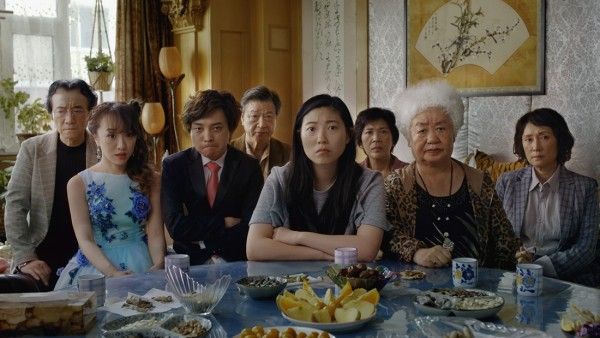During a director’s roundtable last year, The Farewell director Lulu Wang revealed that she had been offered more money for the film from a streaming giant but chose to go with theatrical distribution from A24 instead. “We got an offer at Sundance from A24, and also got a much larger, double offer from a large streaming platform,” continued Wang. “And, you know, the financiers and the producers of course were like, ‘Are you crazy? We have to take this bigger deal.’ And I said, ‘No. It’s not about the money.'”
“For a film that’s 75-80% in Mandarin, subtitled, but is an American film — to even, first of all, get that financed, but then to have that play as an American film, 100% Asian, Asian-American cast, to be seen as an American story and play in theaters for four months, and then for me to be at this table,” she said, “I know for a fact that if I took the bigger money, that they wouldn’t have the energy to put behind someone like me to build my brand when they have so many esteemed, established directors that are also part of the conversation.”
Yesterday, we learned that AMC Theaters and Universal Pictures had struck a landmark deal that would allow Universal to play its movies at AMC Theaters for just 17 days before moving them onto a Premium Video-on-Demand (PVOD) platform. While the exact details remain unknown, the current outline looks like AMC could get tentpole movies for longer than 17 days, but smaller films that need to build word-of-mouth would be shuttled onto PVOD. It should be noted that AMC is planning to launch its own PVOD service that could benefit from these releases. Furthermore, while these movies could continue to play in theaters after 17 days even if they’re on PVOD, that seems unlikely as major theater chains have repeatedly bristled at showing any movie that’s on streaming, which is why they refuse to show Netflix films.
While this turn of events isn’t exactly surprising given the dire straits of theatrical distributors and the desire of major studios to shorten release windows (most blockbusters tend to make most of their domestic box office in the first three weekends anyway), it’s still a horrible turn of events for people who like movies that aren’t just a collection of CGI-filled set pieces. It should be noted that while this deal doesn’t explicitly support blockbusters at the expense of other movies, reading between the lines you can see that those blockbusters will probably get priority at the theater and may not be subject to the 17-day window while smaller films that struggle to find an audience will be destined for PVOD after only 17 days. It’s fine to have blockbusters, but the theatrical experience was meant for more than just one kind of film, and for more than one kind of filmmaker.
Under this new model, there’s no room for smaller movies. Setting aside all the other damage this will cause (this deal could easily kill independent theaters and any distributor who isn’t a massive theater chain), the AMC-Universal pact harms filmmakers who are looking to build a reputation, but are now going to be shuttled into the streaming pipeline that directors like Lulu Wang sought to avoid.
It’s not that streaming is inherently bad, but it does not offer the same benefits to a rising director. Part of the problem is that streaming is a black box. There’s no way to know if a film has done well or not, so it’s not like a filmmaker can point to public statistics and show how their movie performed relative to expectations. There are no expectations, and there are no public statistics. The movie plays on a streaming service, maybe it gets a little bit of attention in the press or on social media, and then everyone moves on to the next thing. It’s not an event or a work of art, but instead it’s content for the machine. It serves the streamer more than it serves the artist.
That leads to the second problem, which is that services like Netflix, Amazon, and even PVOD are more about content. No one knows how a film performs on PVOD, but it doesn’t matter because it’s now simply part of a new revenue stream, and one where the studio doesn’t have to share performance statistics. It’s also now out of the public eye because it is content without a push for the director’s brand. It’s simply a rental that you enjoy on the couch, not a film you make time to go out and see. What happens to new talent when no one knows if their films found an audience? Even if those numbers are shared internally, there will no external buzz to drive viewers to seek out new talent.
The AMC-Universal deal probably won’t affect established talent in Hollywood, but it creates a new divide where smaller films and rising filmmakers who were already struggling to make their voices heard will have an even tougher time in a landscape that prioritizes blockbusters and shuttles mid-range and indie pictures to a PVOD wasteland where the consumer will ponder if they want to pay $20 to watch a movie, or if they’ll just flip over to other content on Netflix or Amazon. With a release window of just 17 days, there’s no time to build word of mouth for the next Lulu Wang. That director now just makes a film that’s destined for PVOD, and if anyone sees it there, we’ll never know.


